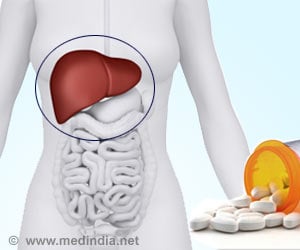The US FDA has approved a fixed-dose combination of sofosbuvir, velpatasvir and voxilaprevir for the treatment of hepatitis C.
- The sofosbuvir-velpatasvir combination was approved last year by the US FDA for the treatment of hepatitis C
- The FDA has now approved another drug called voxilaprevir to be used along with the above two drugs
- The new combination will be beneficial for patients who did not respond well to previous treatments
TOP INSIGHT
A new fixed-dose combination of sofosbuvir, velpatasvir and voxilaprevir has been approved by the US FDA for the treatment of hepatitis C in patients without or with mild cirrhosis who had been treated earlier.
Last year, we published reports on the successful trials on two combinations – the sofosbuvir-velpatasvir combination, and the elbasvir - grazoprevir combination, which later led to their approval by the US FDA.
The new combination pill contains 400mg of sofosbuvir and 100mg each of velpatasvir and voxilaprevir. It can be used in those who have not responded to treatment with sofosbuvir (patients with genotypes 1a or 3) or NS5A inhibitor (patients with any genotypes).
The approval of the combination comes following the completion of two Phase 3 trials that evaluated the treatment in patients without cirrhosis or with mild cirrhosis.
- Patients included in the POLARIS-1 study harbored the hepatitis C genotype 1 and had failed treatment with an NS5A inhibitor drug. These patients either received the new combination treatment or placebo for a duration of 12 weeks. Patients who had other genotypes were administered the combination treatment.
- The POLARIS-4 study, also conducted over 12 weeks, included patients with genotypes 1, 2 or 3 who failed to respond to treatment with sofosbuvir but not to an NS5A inhibitor drug. The new combination treatment was compared to the older combination of sofosbuvir and velpatasvir.
Side effects of the new combination noted in the studies included headache, fatigue, diarrhea and nausea. The percentage of people who discontinued treatment due to side effects was less than 1 percent.
Thus, the new combination of sofosbuvir, velpatasvir and voxilaprevir provides an option to hepatitis C patients who did not respond to the earlier regimens.
- FDA approves Vosevi for Hepatitis C - (https://www.fda.gov/NewsEvents/Newsroom/PressAnnouncements/ucm567467.htm)
- Bourliere M et al. Sofosbuvir, Velpatasvir, and Voxilaprevir for Previously Treated HCV Infection. N Engl J Med 2017; 376:2134-2146 DOI: 10.1056/NEJMoa1613512
 MEDINDIA
MEDINDIA





 Email
Email










